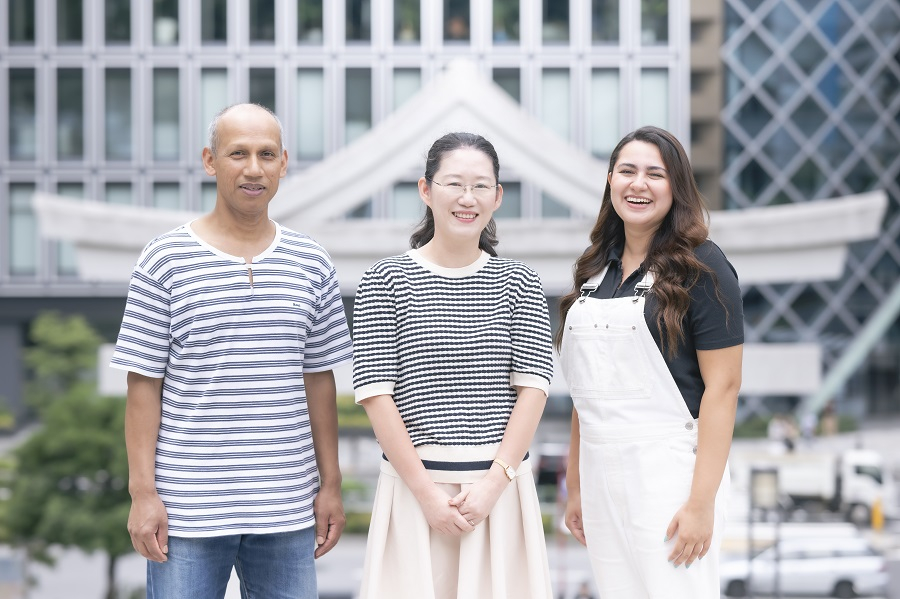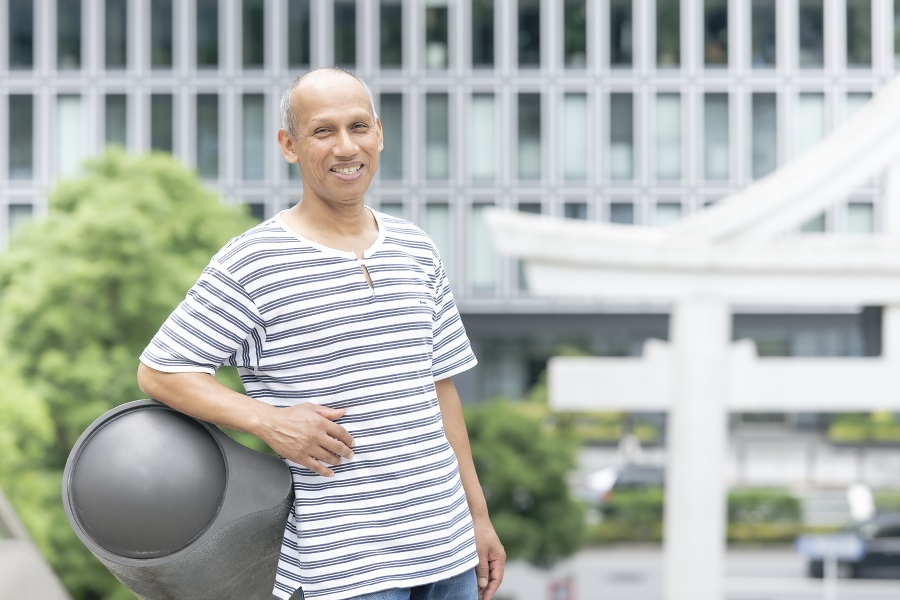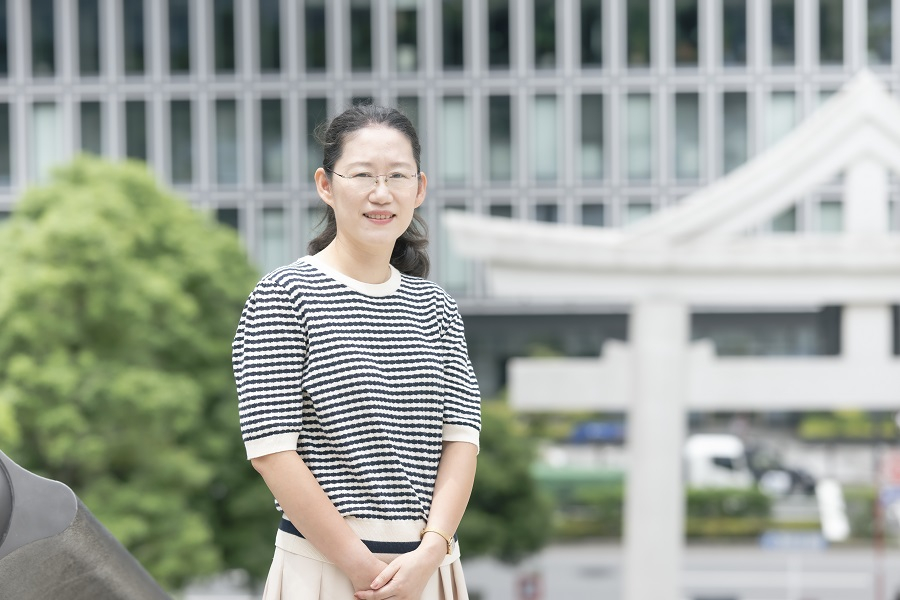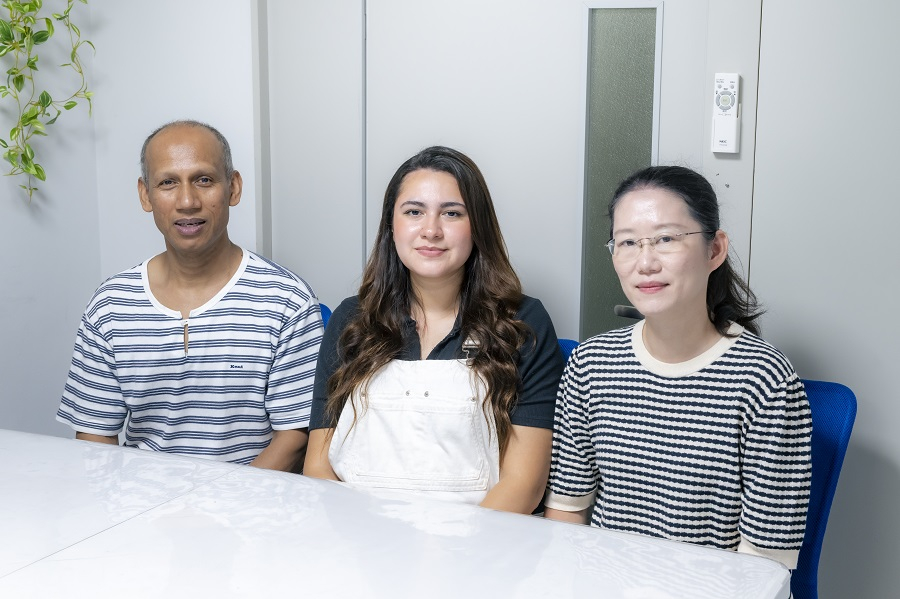Intercultural Crosstalk
About Community-based Japanese Language Classes and Support -The Place Called "Community Japanese Classes"-

See their profiles here
Click for "1st Round" Here
Round 2: About Work and Activities
We are pleased to present a 3 part series of round-table discussions on "work and activities that connect their home countries with Japan".
In this second session, we will be discussing their work and activities. What kind of reactions do their family and friends have to their work and activities?
They also talked about how their own lives and the environment around them had changed as a result of continuing with their work and activities.
Round 2: About The Place Called "Community Japanese Classes"
We are pleased to present a 3 part series of round-table discussions on "Community-based Japanese Language Classes and Support".
The 3 participants attended Japanese language classes at different times in their lives and in different areas, but how did they spend their time at the classes? They talked a lot about the classes, the teachers, and meeting their classmates
What Kind of People Were the Teachers Who Taught You Japanese?

The teacher I had was an older gentleman who was like a professional. The other teacher, who had a full-time job, was like an older sister to me. I think it must be hard to volunteer on Saturdays. All the teachers are kind. I don't think you can volunteer unless you are a kind teacher.
My teacher was a normal office worker (a lady). At first, I had one-on-one lessons, but before I knew it, there were 4 or 5 of us studying together. I felt that the teacher was working harder than us. She would say, “I'll teach you this on Saturday,” and she would study really hard before then and teach us seriously, which made a big impression on me. For example, if it was a long passage, we would all read it and do the questions, and then each of us would talk about it.
My teacher was very cheerful and had a very unique personality. Her nails were really cute and sparkly, and the children would say “Teacher's cute” and stick to her. She had lots of stickers and gave us one each time, so we always wanted to go again.
The majority of the students in my class were office workers. There was one person who had been studying for 8 years because he wanted to speak Japanese like a native speaker, even though he could already speak it. I think that's amazing. Normally, the students didn’t interact with each other much, but when there were events at the school, we all talked together. Everyone relaxed and they talked about various things, not just about studying. It was fun.
Since I started attending the Japanese language volunteer class, my world has expanded greatly. I've met lots of people, made friends, and gone on barbeques and cherry blossom viewing trips. In Katsushika Ward, there is a cherry blossom festival, and everyone from the volunteer class made toppoki (Korean food), gyoza (dumplings), keema curry, etc. and there were even people who ran a stall.
What Kind of Support Was Particularly Helpful?

The support we received when I was preparing for high school entrance exams was very helpful. Also, the Japanese language teacher taught me how to use honorifics, which was great.
The support you need will change depending on the time of year. When my child was small, I needed support to take her to the hospital, so I practiced conversation with the teacher. When she started elementary school, it was things like PTA. If you can speak Japanese, you can understand Japanese culture, so many problems can be solved. The Japanese language classes are a great help.
I really appreciated the support I received from the volunteer teachers, who told me that if I worked hard I could do it. Also, the support from your workplace is very important. The class starts at 7pm, so if you have to work overtime you wouldn't be able to attend. Since the class only meets once a week, it is great if the workplace supports you by not having overtime on the days you have class.
I like the fact that you can ask about things like nursery schools and other questions at the Japanese language classes. I think it's important to have information support.
Since I became a teacher, I've started to feel the difficulty of drawing the line between what kind of support I should provide. However, when I think back to when I was a student, I was very happy that I was able to learn about good restaurants in the area because the Japanese language classes were held in the local community. I went there with my friends.
There is no particular support that I need, but when I entered elementary school, I wished that they had checked my Japanese level. That's all.
What Kind of Events Have You Participated in Through the Japanese Language Classes?

In the classroom, we experienced Japanese culture through activities such as mochitsuki (pounding rice cakes), fireworks, and hanami (cherry blossom viewing) at Kinuta Park. We also took part in disaster prevention training twice, and tried using an AED. We also took part in local festivals.
When my mother was attending a Japanese language class, people from a volunteer organization were making and selling chocolate bananas at a festival. My mother and I took part and helped out.
When I first started attending Japanese language classes, I didn't know anything about festivals or Bon Odori. I bought a yukata and danced as hard as I could, copying the way other people danced. I also joined the local community association, so I made lots of friends in the area.
At high school, there was a Japanese speech contest, and I talked about the poverty problem in Peru.
There was no speech contest like that at the school I attend.
Katsushika Ward holds a speech contest during the International Exchange Festival. Each person has 3 minutes to give their speech, and the content is so moving that it gets everyone really excited. I was thinking of entering myself, but then I ended up being a judge. I was the only judge with foreign roots.
Do You Speak Japanese With Your Family and Friends?

Aisha, when you talk to people from South America, do you speak Japanese or Spanish?
If the person is originally from a school where they speak Japanese, I'll speak Japanese. It depends on the person.
In addition to Japanese language classes, I often attended study support classes run by an NPO. There were classes in Japanese, math, science and other subjects, and I really enjoyed them. In addition to the study support classes, there were also native language classes, and there were also Spanish and English classes. When I was a university student, I participated as a volunteer teacher. I taught the students about studying, and I also taught Spanish at the native language classes.
I regret a little that I didn't teach my children my native language. I taught them a few words, though.
My son speaks Chinese, but at school he speaks Japanese. In the family, we speak Chinese as much as possible. It's easier to scold him in Chinese.
When I was a student, I was once told not to speak Spanish at school. I understand the teacher's desire for me to study Japanese, but I think both my native language and Japanese are important.
My family only speaks Japanese. I'm also starting to forget my native language, and I've become better at Japanese.
Children from China don't want to speak Chinese at all. They say they don't want to speak Chinese when they’re out and about because people will look at them.
I know how that feels. When I was a child, I wanted to become Japanese because I didn't want to be different from everyone else. Even though I was born in Japan and only knew Japan...
That's why I sent my child to an international school. I wanted them to know that there are children from many different countries who speak many different languages. Children's ideas and their parents' ideas are different.
I didn't like being different from everyone else, but when I was in high school, I started to think that it was okay to be myself. The way people around me thought about me also changed, and people started to say that foreigners were cool.
From the 3 participants’ stories, we can see that Japanese language classes also provide a place to be for foreigners who have just arrived in Japan. It is a place where you can experience various things and ask questions, and it also provides a place for interaction between learners who study there. You can also experience Japanese culture through events, and it is a fun place to be. In the 3rd installment, we will talk about "What I gained from the local Japanese language class".
── Continued in the Following Issues
